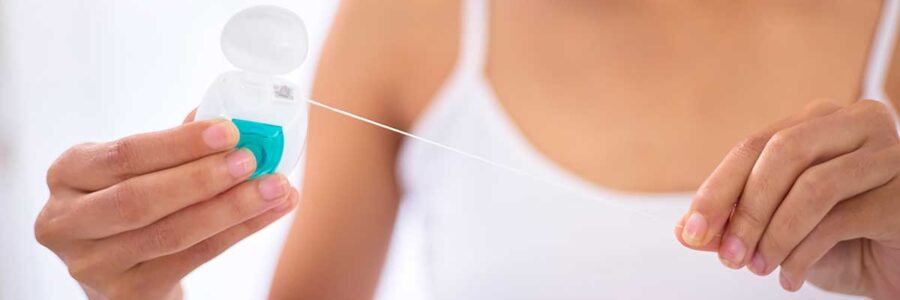Flossing is one of the most widely recommended dental habits, yet most people don’t realize that their flossing routine could be harming their health. Many conventional flosses—including some marketed as “natural” or “eco-friendly”—contain toxic chemicals, synthetic fibers, and coatings that could introduce harmful compounds into the body.
One of the biggest concerns? Many flosses contain Teflon, or PTFE, the same chemical used in non-stick cookware. PTFE belongs to a class of chemicals called PFAS, which are known to accumulate in the body and have been linked to numerous health concerns.
The Problem with Teflon-Coated Floss
Floss coated in PTFE is designed to glide easily between teeth, but that convenience comes at a cost. PFAS exposure has been associated with hormone disruption, immune dysfunction, metabolic disturbances, and an increased risk of certain cancers.
Even if your floss isn’t coated in Teflon, it’s probably still made from nylon or polyester, both of which release microplastics. When microplastics enter the bloodstream, they can trigger inflammation, oxidative stress, and even cellular damage.
The Safer Alternative: Non-Toxic, Natural Floss
The best way to protect yourself from these hidden risks is to switch to floss made from 100% silk or another natural fiber. These flosses are biodegradable and free from synthetic chemicals, meaning they won’t introduce microplastics or toxic compounds into your mouth.
While natural floss can be harder to find in stores, it’s worth seeking out high-quality, non-toxic options online. A simple switch like this can reduce your daily toxic load and support long-term oral and overall health.
Take Control of Your Health One Small Step at a Time
Your flossing routine should support your health, not expose you to unnecessary toxins. Switching to a natural, non-toxic floss is a small but significant step toward reducing your overall toxic burden and supporting optimal wellness.
If you’re already mindful of the food you eat and the products you use, don’t overlook something as simple as dental floss. The small choices you make each day add up over time, and choosing a clean, plastic-free floss is just one more way to protect your long-term health.
References:
- Jiao, Yan, et al. “Association Between Serum Levels of Perfluoroalkyl and Polyfluoroalkyl Substances and Dental Floss Use: The Double-Edged Sword of Dental Floss Use-A Cross-Sectional Study.” Journal of Clinical Periodontology, Jan. 2025.
- Lee, Yongjin, et al. “Health Effects of Microplastic Exposures: Current Issues and Perspectives in South Korea.” Yonsei Medical Journal, vol. 64, no. 5, May 2023, pp. 301–08.


